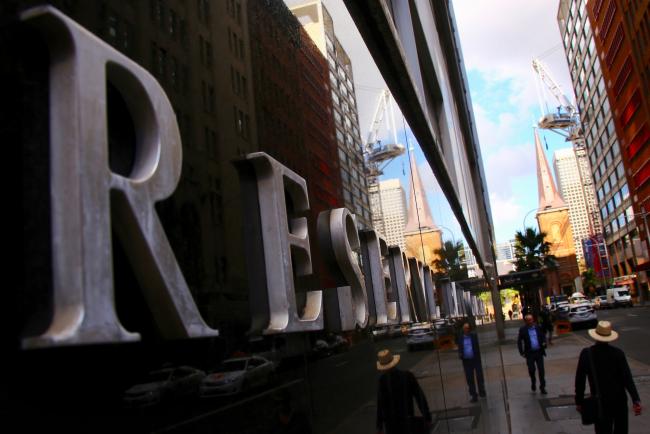(Bloomberg) -- Australia’s debt-laden households responded more with concern than enthusiasm to the Reserve Bank’s interest-rate cut, according to surveys conducted since last week’s move.
Westpac Banking Corp.’s consumer sentiment index fell 0.6% in June, while Australia & New Zealand Banking Group Ltd.’s weekly report showed a 2% drop, the lenders said Wednesday. Westpac noted that confidence was showing signs of strength in the lead up to the policy easing, but that fell away in the following days -- suggesting respondents were impacted by last week’s GDP data showing the weakest annual expansion in 10 years.
“This is a disappointing result,” said Matthew Hassan, Westpac’s senior economist. It “suggests deepening concerns about the economy have outweighed the initial boost from lower rates.”
The biggest decline in Westpac’s sub-indexes was the one tracking economic expectations for the next year, which slid 4.7%.
RBA Governor Philip Lowe ended an almost three-year pause to cut the cash rate to a new record low of 1.25% last Tuesday as he tries to encourage firms to hire and invest and revive a slowing economy and tepid inflation. His decision was validated in a separate survey of businesses released yesterday that showed a continued deterioration in conditions.
Lowe is aiming to drive down unemployment to help return inflation to its 2-3% target. But the Westpac report showed consumer confidence in the labor market is faltering, with an expectations index for unemployment jumping 5.1%.
Australians are struggling under record-high household debt and a period of prolonged weak wages growth. Their financial position has been further hurt by falling house prices. All that has weighed on consumer spending that accounts for 60% of GDP, and prompted the RBA’s decision to lower borrowing costs to try to put more cash in people’s pockets.
Underscoring policy makers’ concerns, the Sydney Morning Herald reported Tuesday that Lowe met with key members of parliament’s upper house and urged them to pass the government’s proposed tax cuts to inject more disposable income into the economy.
Traders are pricing in a better than 70% chance of another RBA rate cut in August.
